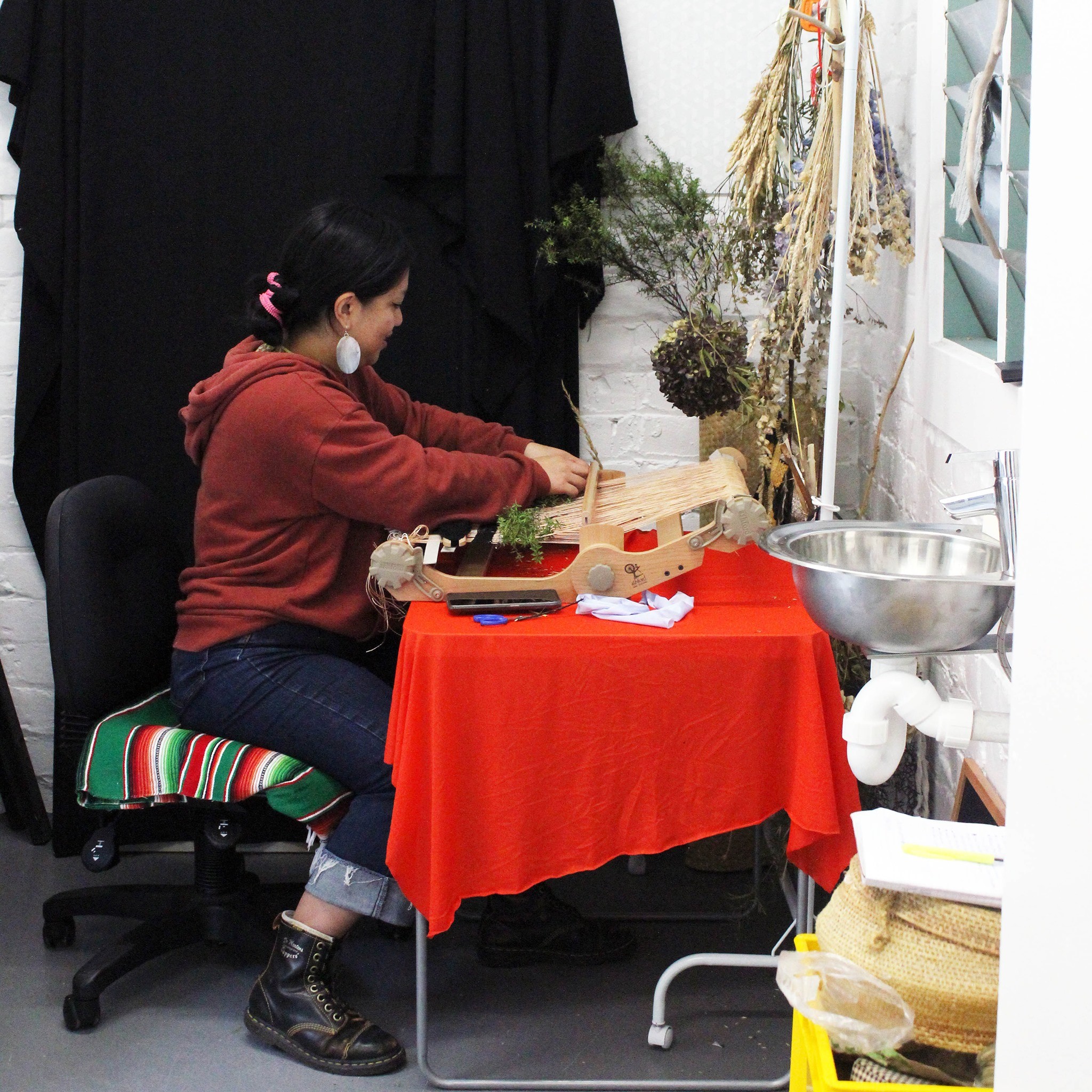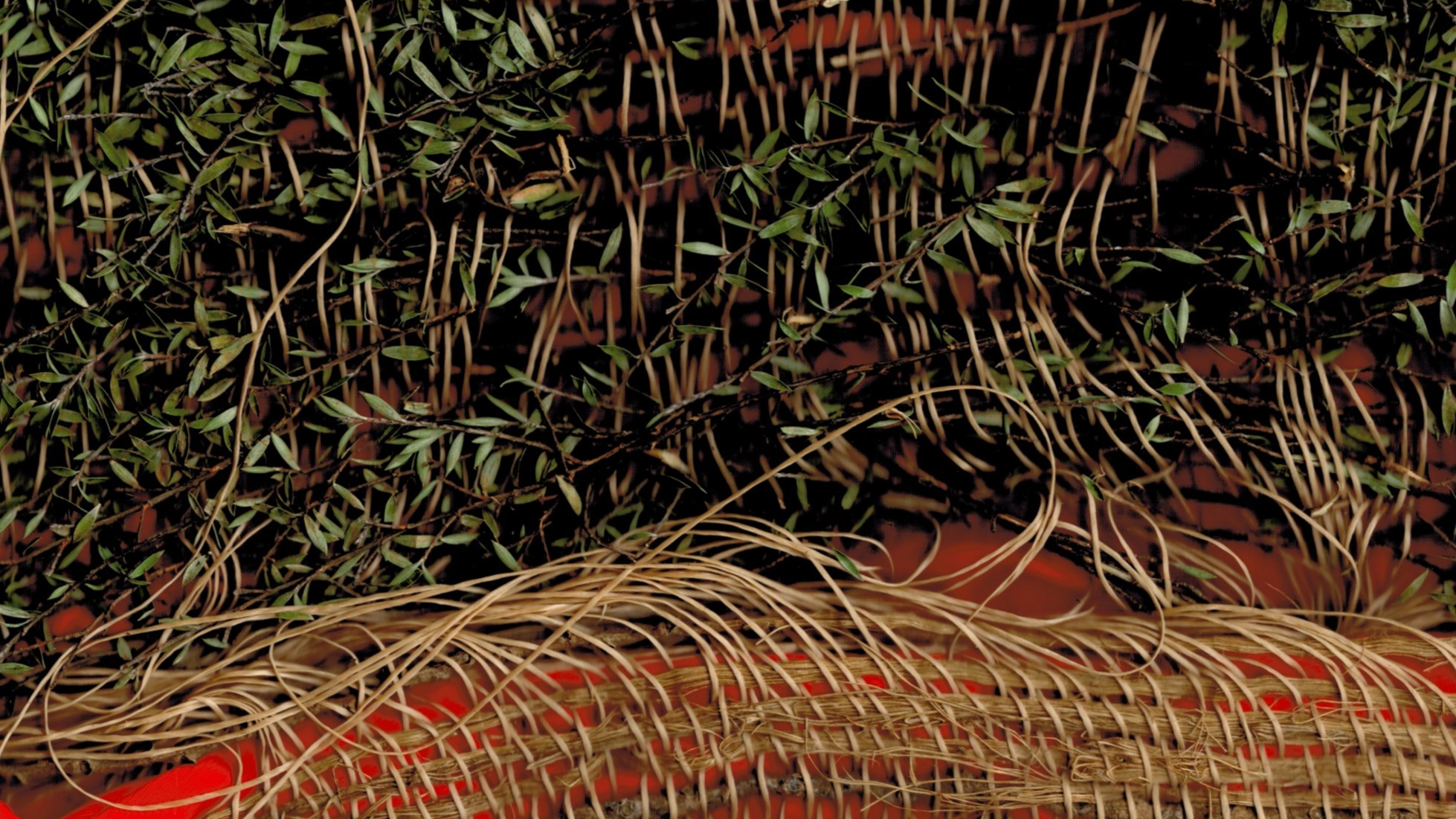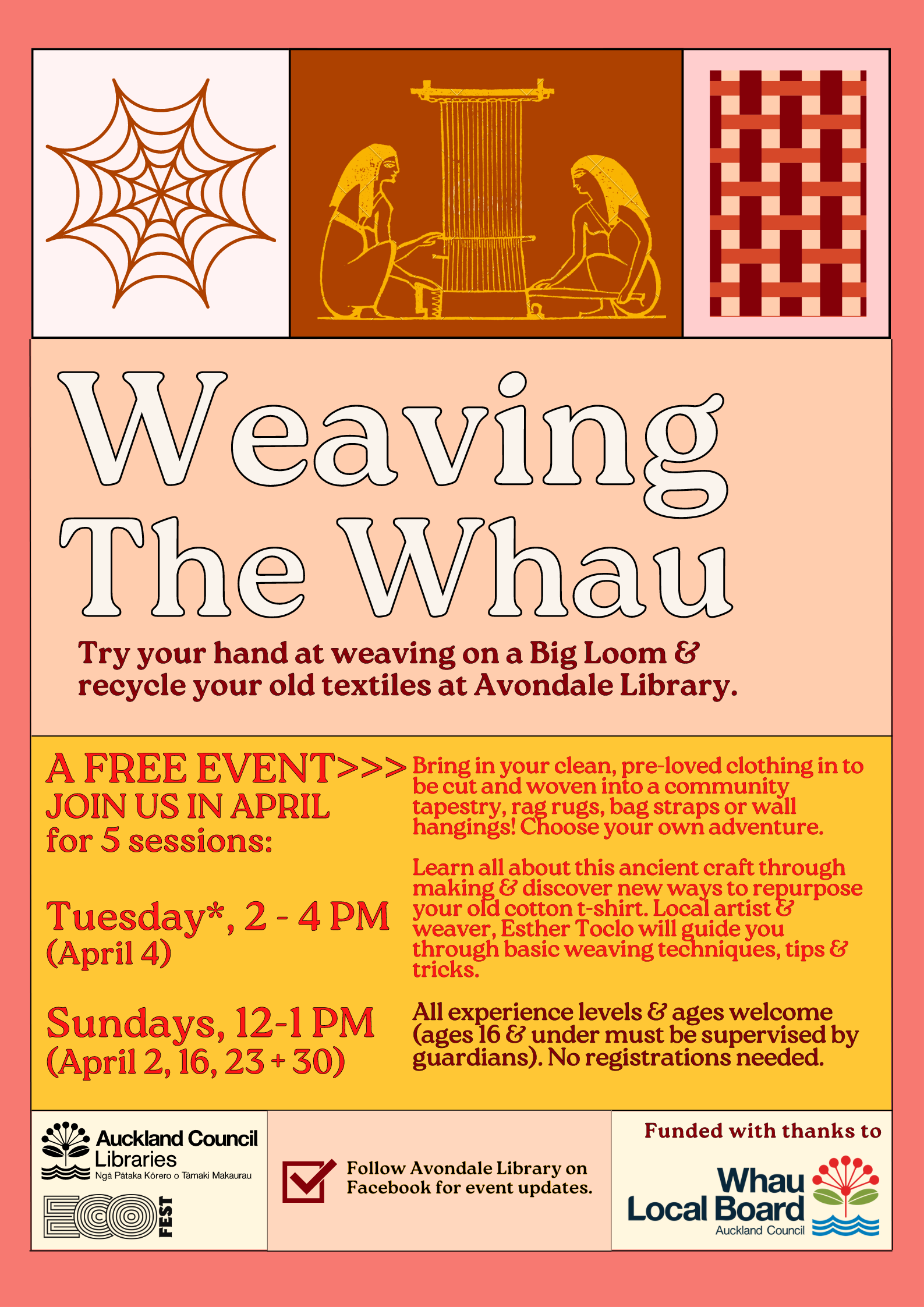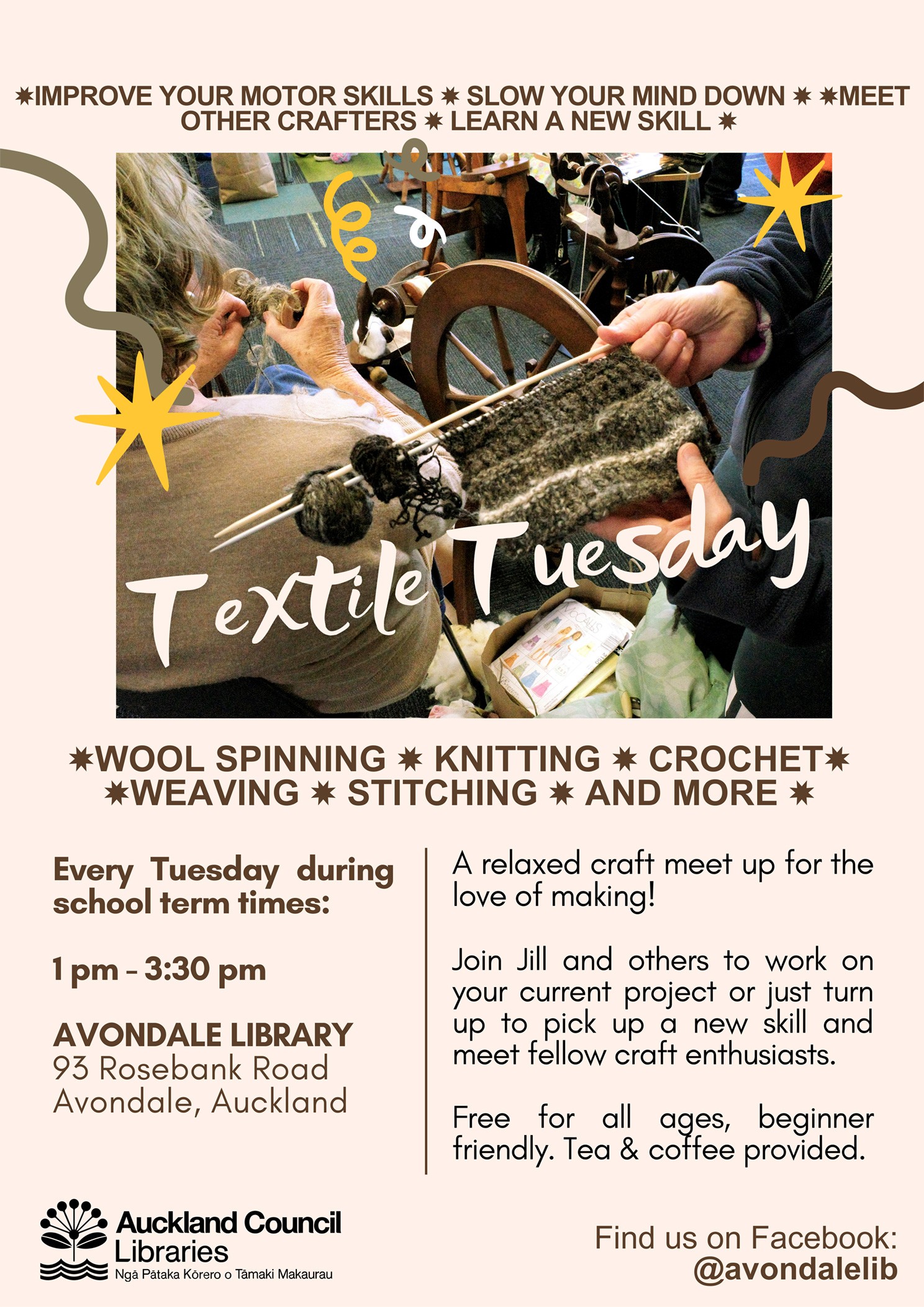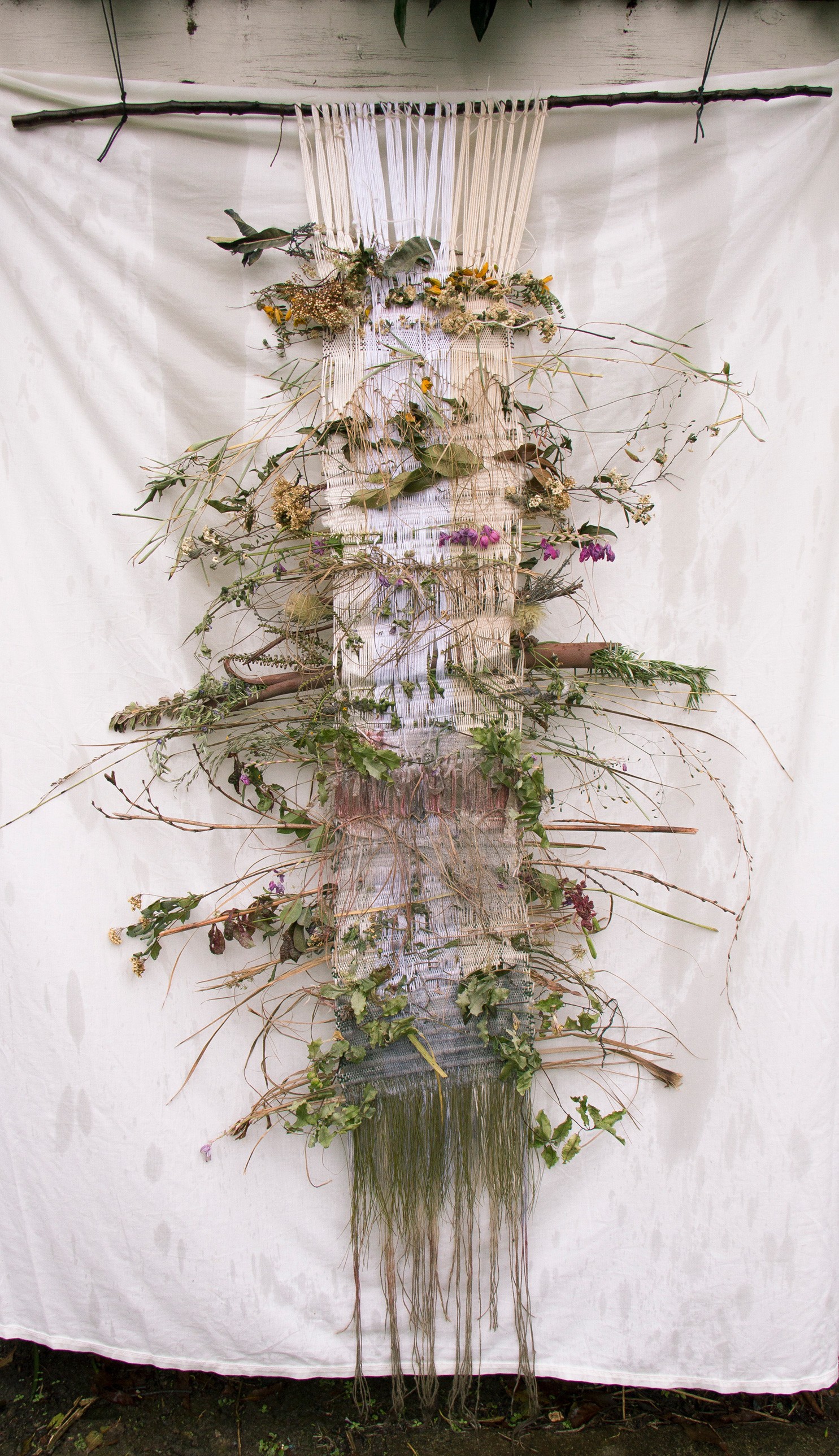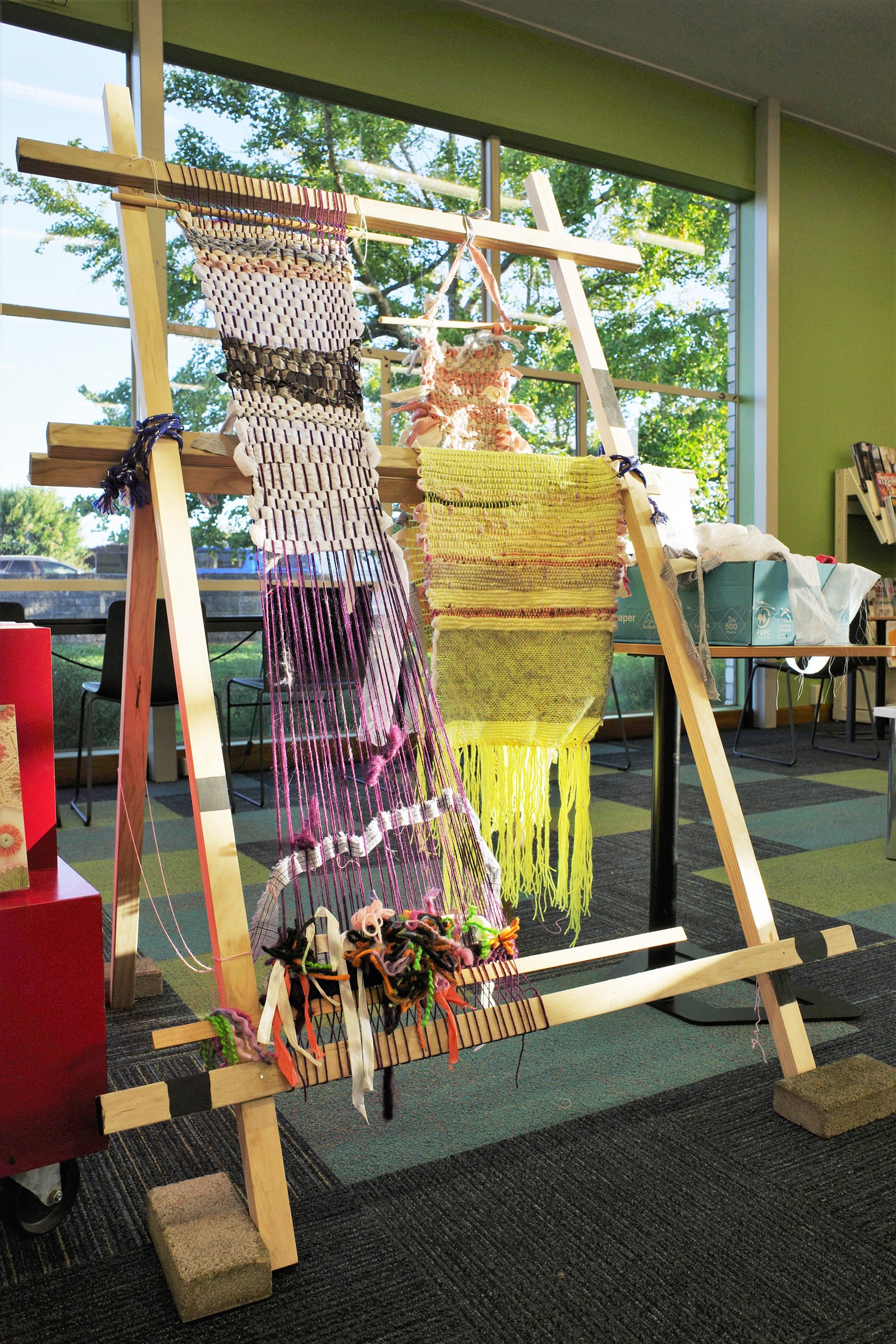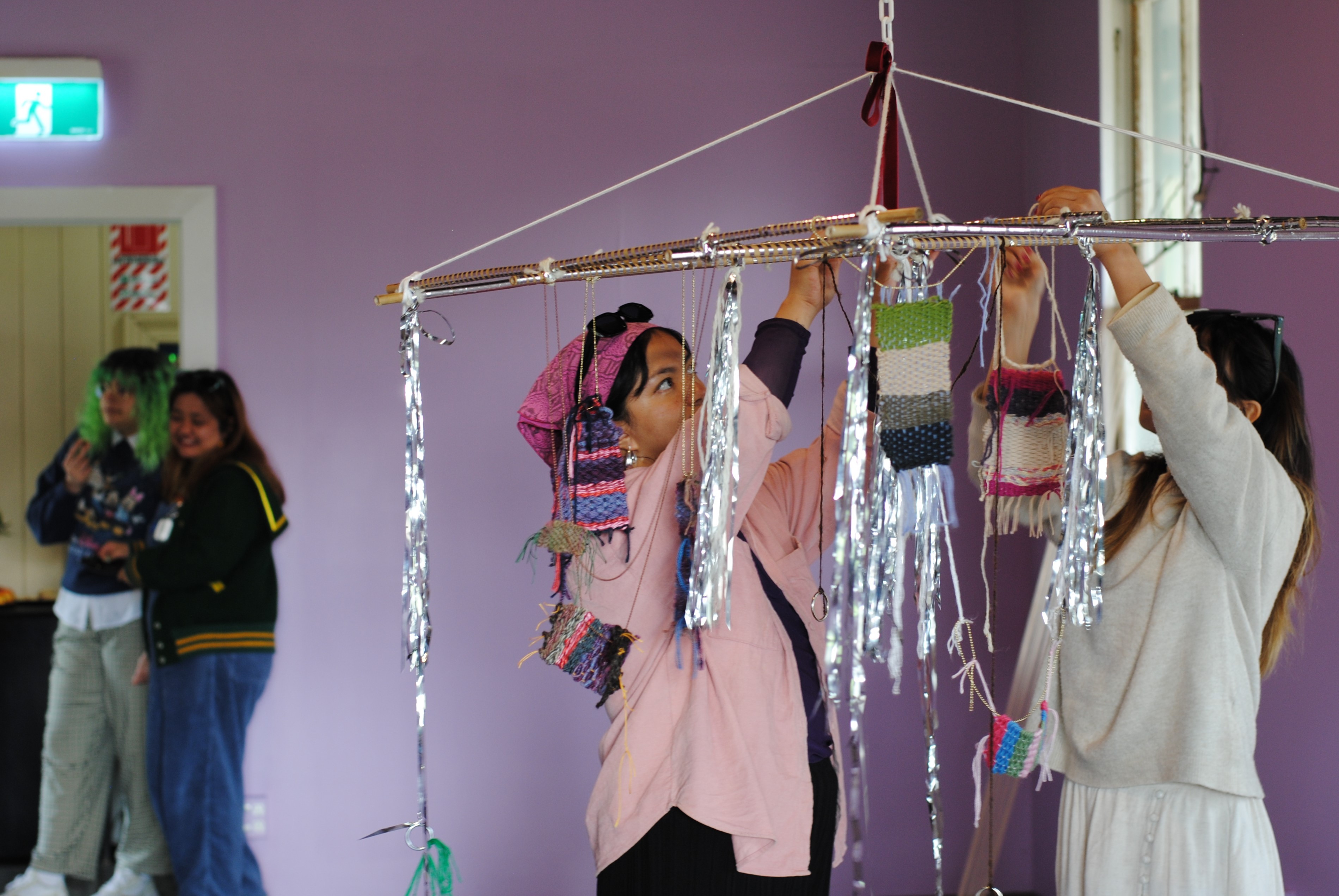INFO
| Name | Esther Toclo (she/they) |
| Born | 1994 |
| Country of Birth | Philippines |
| Place of Residence | Tāmaki Makaurau Auckland |
| Ethnicities | Filipino (Igorot) |
| Artform | Visual arts, Socially engaged art |
| Decades Active | 2020s, 2010s |
ABOUT
Esther Toclo is a queer weaver and craft and cultural practitioner based in Tāmaki Makaurau Auckland with strong ties to Baguio, Northern Philippines. Centred on healing, she practices traditional hand-weaving methods with foraged natural materials and readily available materials. Through the process of slow textile making, her Igorot weaving heritage is honoured whilst resisting neocolonialist notions of what craft and art can be. As a cultural practitioner, she has an ongoing project of documenting traditional weaving and language knowledge through images and writing and has organised regional events for the Igorot community.
Toclo graduated with a Bachelor of Visual Arts from Auckland University of Technology in 2014. At her final graduate showcase, she remembers a callous remark made towards her work by an invited senior Pākehā artist, “Remember that you’re here to study art…not sociology”. These words made her feel even more that her socially and politically charged work did not belong in the narrow definition of ‘art’ imposed by the so-called ‘New Zealand contemporary art world’.
Toclo learned traditional Igorot weaving using the backstrap loom from her adopted grandmother, Ina Fabiola. Her weaving lessons also served as language practice for Toclo because Ina Fabiola’s Ilokano was deep. “When you’re weaving it’s like playing an instrument. It’s rhythmic: a lot of deep breathing and counting. You have to pay attention to every thread because if you make a mistake you have to redo the whole thing.”
Toclo is heavily influenced by traditional Igorot back strap weaving due to the body's connection with the earth. Traditionally, the loom is connected to the weaver with a back strap, the vertical threads are held in place by the weaver's belly which is then connected to a tree or a post underneath a house which is very grounding. Toclo is a contemporary weaver using traditional methods from her heritage, combining modern materials like recycled nylon, plastic and plants foraged from her local area in the Whau and Waitakere - foraging for overgrown and wilting plants that remain pliable when dried and hold up to the weaving process. Toclo says:
I weave with fibre sourced from op shops. I try not to purchase new threads unless it's necessary for the project, there's too much textile waste already and it's quite fun to investigate the quality of the mystery threads. Sometimes I weave with plants through the weft, for this I forage around local parks or overgrown curbsides, never taking more than half to allow plants to regenerate.
In 2021 Toclo was one of the four recipients of the 9-month long Creative Studio Residency at Studio One Toi Tū. During her residency, she used woven plant tapestries and photography to explore what it meant to be Igorot living in Aotearoa.
The result was an exhibition in 2022 at Studio One Toi Tū titled KAILIYAN, which moved between Igorot methods of art making and photography. Honouring the craft of her matriarchal ancestors, Toclo created woven artworks with foraged plants using both the backstrap loom and a tabletop loom.
For her photographic work, Toclo used a Polaroid camera: a medium she considers accessible and effective for capturing spontaneous moments. She documented an Igorot community gathering after one of the COVID-19 pandemic lockdowns, capturing moments of warmth and joy that centred on human connection. Her work offers a new narrative that transcends the exploitative and fetishising North American colonial photographic narratives of the past, which depicted the ‘savage Igorot’. KAILIYAN was a reflection on her personal experiences of the displacement that comes with migration, an exploration of what it means to be an Igorot-Filipino living in Aotearoa and a way to reconnect with her Indigenous identity.
Toclo currently works at a community whare pukapuka (library) where they tie together relationships through diverse events and programmes. She helped launch a craft group called Textile Tuesdays where a diverse range of textile enthusiasts gather to share wool spinning, knitting, weaving and sewing knowledge. She also initiated Weaving the Whau — a community weaving event where folks bring in their clean pre-loved clothing to be transformed into community tapestry, rag rugs or wall hangings.
LINKS
‘Residencies Open Minds During Lockdown’ — The Big Idea
Studio One Toi Tū January–April 2022 programme PDF
Key works / presentations
2024 – Pasabit!, soft shell / Te Tuhi’s Parnell Project Space, Tāmaki Makaurau
2023 – Textile Tuesdays, Avondale Library, textile enthusiast craft group, Tāmaki Makaurau
2023 – Weaving the Whau, Avondale Library, Community weaving group, Tāmaki Makaurau
2022 – KAILIYAN, Studio One Toi Tū, Tāmaki Makaurau
2021 – Creative Studio Residency 2021, Studio One Toi Tū, Tāmaki Makaurau
2019 – Bitter Harvest (group exhibition), Black Asterisk, Tāmaki Makaurau
